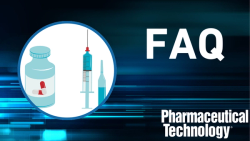
OR WAIT null SECS
- About Us
- Advertise
- Contact Us
- Editorial Info
- Editorial Advisory Board
- Do Not Sell My Personal Information
- Privacy Policy
- Terms and Conditions
© 2026 MJH Life Sciences™ , Pharmaceutical Technology - Pharma News and Development Insights. All rights reserved.
Amgen's PCSK9 mAb Shown to Protect Against Heart Attack and Stroke
According to results from the FOURIER trial, Repatha significantly reduced the risk of cardiovascular events and death in patients with atherosclerotic cardiovascular disease.
Amgen announced on Feb. 2, 2017 that the company’s FOURIER trial met its endpoints and that treatment with Repatha successfully reduced the risk of heart attack and stroke in patients whose low density lipoprotein cholesterol (LDL or LDL-C) was inadequately controlled with statins. Detailed results from the Repatha FOURIER outcomes trial and the related EBBINGHAUS trial will be presented at the American College of Cardiology meeting on March 17–18, 2017.
In the prior OSLER-1 and OSLER-2 trials for Repatha, there was evidence of an increase in adverse neurocognitive events. Approximately 1900 patients enrolled in the new FOURIER study were also enrolled in the EBBINGHAUS study-which measured memory and psychomotor speed-to assess the overall neurocognitive function of patients who were treated with Repatha.
Amgen banking on broader access and improved uptake
This new, protective indication could serve to make Repatha more attractive to payers in the long run and could allow the product to enjoy broader access. Currently, 75% of Repatha prescriptions are rejected by payers, largely because of its $14,000 price tag and its narrow indication for those with with heterozygous familial hypercholesterolemia (HeFH) or clinical atherosclerotic cardiovascular disease (CVD) who require additional lowering of low density lipoprotein cholesterol (LDL-C). But now that the drug has demonstrated a more significant clinical benefit in the prevention of cardiovascular events, it should be harder for payers to reject reimbursement claims. Amgen’s Anthony Hooper, executive vice-president of global commercial operations, recently said in fourth-quarter earnings call that the company’s focus remains on helping all payers improve access to Repatha. “The utilization management criteria that they have at the moment is beyond the label and we work every day to improve upon that,” noted Hooper. “We look forward to seeing the payer response now that we have the outcomes data. But of course, we won't be able to promote that until it's in the label.”
The new efficacy data, coupled with a monopoly position in the market due to a recent injunction prohibiting Sanofi and Regeneron from making and selling Repatha's competitor, Praluent (alirocumab), could significantly increase Amgen's revenues in 2017 and beyond. In fact, David Meline, Amgen’s CFO and executive vice-president, said in a fourth-quarter company call that as a result of the new positive cardiovascular data and the outcome of Repatha's legal case (and consequently, the switch from Praluent to Repatha for a majority of current Praluent patients), the company's guidance ranges "are wider" than they have been in preceding years.
In light of the aforementioned circumstances, it appears that a 2015 prediction by CVS Health-that PCSK9 drugs "will likely be the highest selling class of medications in history"-was right on the money.
Source: Amgen, Seeking Alpha



